Making digital books available for children across the world
2022–2025
EUR 400.000 Co-funded by the European Union

Adriana Bus
Reading is having adventures. Many children miss the chance of this adventure as they don't have access to literature in their language. In SAYL, we will give children aged 3-5 access to stories, by offering digital books in multiple languages.
Creating a library of high-quality digital books for children
Books Stimulate Adventures for Young Learners (SAYL). They bring children to unknown environments, new emotions, and new people they never met. All children need these experiences.
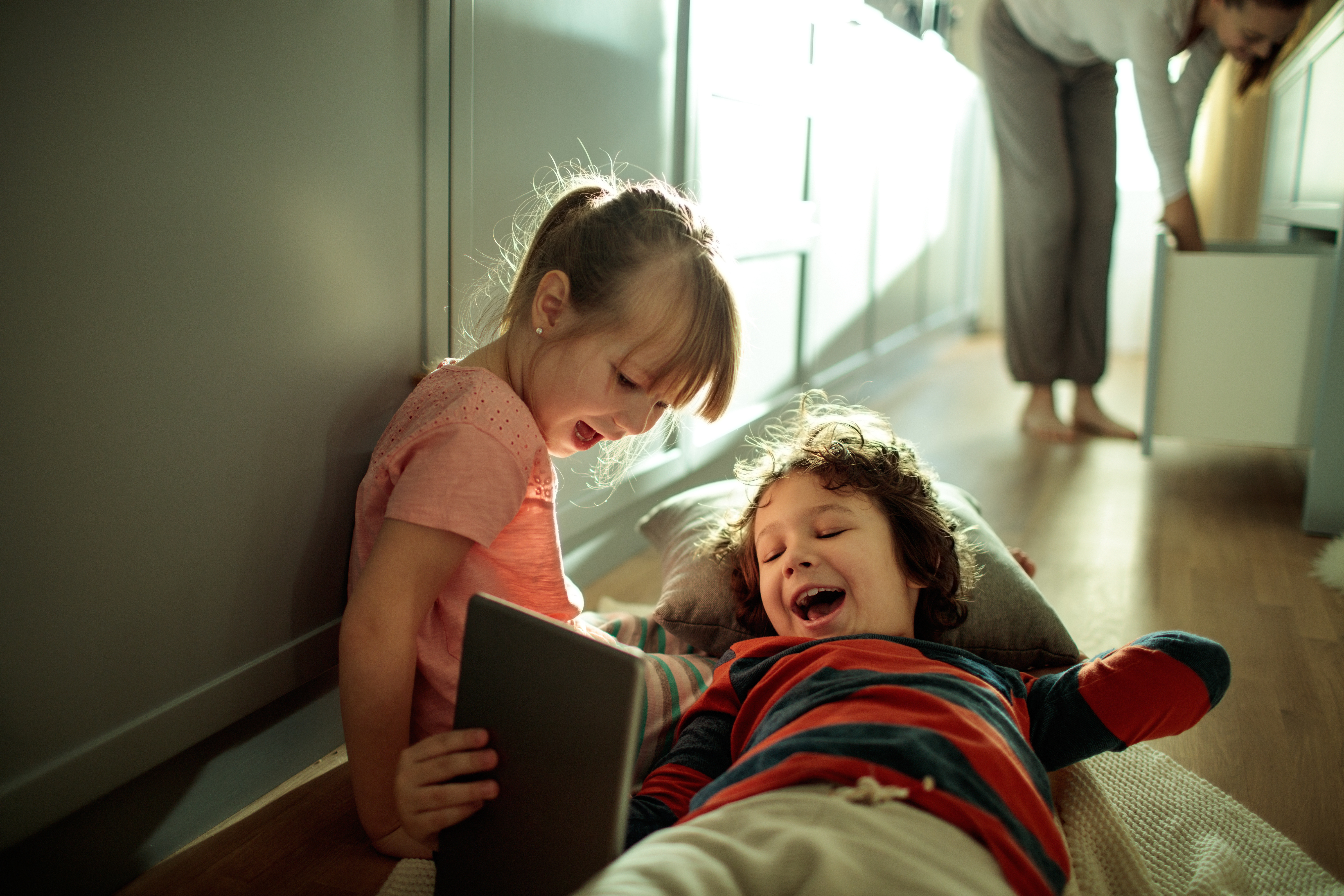
So far, the gold standard for book reading is a parent sharing a book with a young child – the iconic picture is a mother and her child looking at a book. However, research shows that this is often not realistic. Children tend to spend time on tablets and phones. In SAYL, the researchers want to show that digital books that can also be beneficial for young children.
"In SAYL, we hope to show that new, digital book forms, that are less demanding on parents, are also beneficial for young children," says professor Adriana Bus.
Building a platform for digital books
SAYL aims to build a book platform that includes excellent interactive digital stories in the majority and minority languages used in the five countries participating in the project: Germany, Malta, Norway, the Netherlands, and Turkey.
The platform will be online, and will be constructed to allow free access through most modern devices. That way, the platform can make books available also to children who for various reasons are deprived of good picture books.
"We focus on picture books for children aged 3–5. We will equip the books with features that make access to the books less dependent on adults, but that are still rewarding and engaging," explains Bus.
SAYL will add interactive audio, video, and animation to make the picture books maximally attractive and motivating to young children turning the digital books into a serious alternative to young children's favored digital activities. To make that possible, the project has involved an app designer with many years of experience building books.
Engaging, motivating books in several languages
The books will have multimedia features that make them helpful in supporting meaning-making. In addition, the books include the possibility of adapting the semantic richness to children's narrative understanding, choosing a language, and interacting with audio, video, and animation.
The books will be presented on a platform that provides the possibility to select a book and a language. The digital platform will be equipped with features that are made to motivate children to return to the platform.
We consider all additional features that make book-reading possible despite children speaking a language that differs from the environmental language.
SAYL pay particular attention to the needs of children to have books in their family's language.
"We consider all additional features that make book-reading possible despite children speaking a language that differs from the environmental language, and despite challenges such as low-literate parents or parents unfamiliar with the language in the books," Bus explains.
Beneficial for children who are not read to by their parents
While the "ideal" situation is parents reading books for their children, this is not the case in many families. SAYL targets those children who for various reasons do not experience book reading by their parents.
"Unfortunately, many parents are uncertain about reading to their children in the environmental language. Many books are available in this language, but they are afraid to mispronounce words and teach their child the wrong pronunciation. It can therefore be beneficial to, for instance, have not just print, but an oral narrative as well, if parents are unfamiliar with the environmental language in the country where they live," says Bus.
She says that many parents have a low reading proficiency, or were not read to as a child themselves, and may not feel at ease reading to their young children.
"We also focus on children who do not have access to books or libraries due to living in rural areas, their socio-economic situation, or a pandemic."
Expect book reading to increase in kindergartens, schools and families
Bus says the project team expect the book platform to increase and enrich book reading in ECEC organizations and families. In addition, families' close cooperation with ECEC organizations due to access to the same books can bolster a book reading routine in families.
Furthermore, the platform may boost book reading, particularly in disadvantaged groups, like immigrant children, children speaking a minority language, or children deprived of good picture books due to socio-economic factors or a pandemic.
The books will be widely accessible through links that the users can open on every device, and access is not dependent on the Google Play Store or the Apple App Store.
Interview with Adriana Bus
Frequent reading is advice to parents of language-impaired students. But, of course, that's easier said than done. Digital picture books are a good alternative, according to research by Adriana Bus.
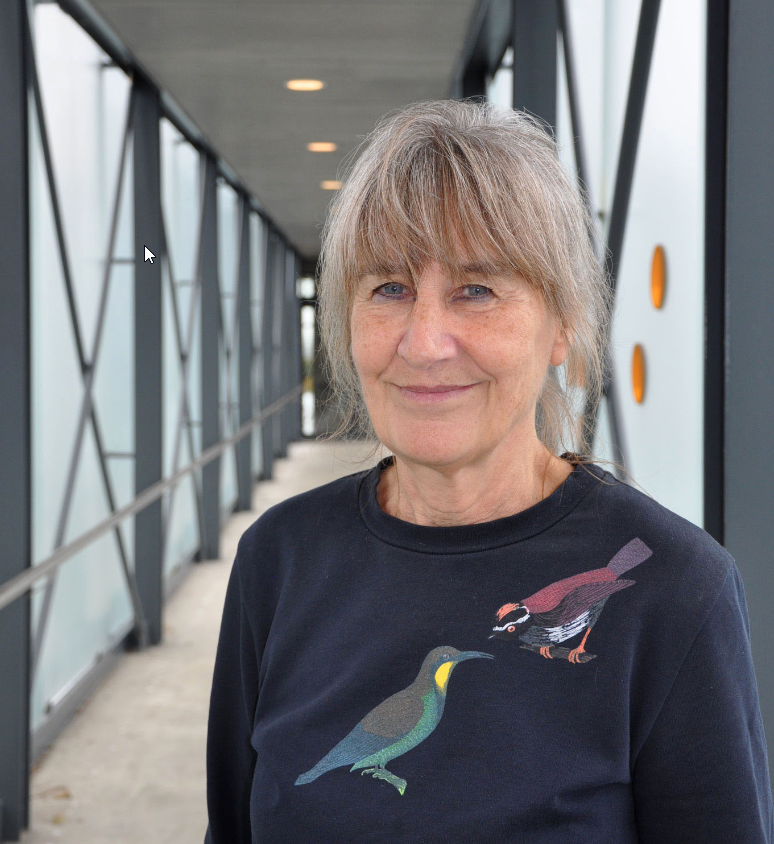
This interview was originally published in Didactief.
https://www.uis.no/en/SAYL
Creating a library of high-quality digital books for children
Books Stimulate Adventures for Young Learners (SAYL). They bring children to unknown environments, new emotions, and people they never met. All children need these experiences.
SAYL hopes to show that multilingual, digital books can make book reading possible for all young children.
So far, the gold standard for book reading is a parent sharing a book with a young child – the iconic picture is a mother and her child looking at a book. However, research shows that this is often not realistic. Children tend to spend an increasing amount of time on tablets and phones. SAYL wants to show that digital books can be a beneficial alternative.
"In SAYL, we hope to show that new, digital book forms, less demanding on parents, are also beneficial for young children," says Adriana Bus.
Building a platform with digital books
SAYL aims to build a book platform that includes excellent digital stories in the majority and minority languages used in the five countries participating in the project: Germany, Malta, Norway, the Netherlands, and Turkey.
The platform will be online and constructed to allow free access through most modern devices. That way, the platform can also make picture books available to young children who are deprived of good books for various reasons.
"We focus on picture books for children aged 3–5. We will equip the books with features, such as a voice reading the text aloud, that make access to the books less dependent on adults, " explains Bus.
SAYL will add audio, video, and animation to make the picture books maximally attractive and motivating to young children turning the digital books into a serious alternative to young children's favorite digital activities. The project involved an app designer with many years of experience building digital books.
Engaging, motivating books in several languages
The books will have multimedia features that support meaning-making. For example, young children quickly miss relevant details in the pictures without sensitive adult guidance. However, multimedia features can support meaning-making instead. Our research shows that zooming in on parts of the illustration or adding motion can be helpful tools.
We will present the books on a platform that allows selecting a book and a language. In addition, the digital platform will be equipped with features, such as a welcoming character, to motivate children to return to the platform.
We focus on picture books for preschool and kindergarten children and equip those with features that make access to the books less dependent on adults but still rewarding and engaging.
Adriana Bus
SAYL pays particular attention to the need for children to have books in their family's language.
"It may even be best for minority children to have books in their first language and the environmental language, enabling them to shift between the two languages. Hearing a story in both languages may stimulate the first language and speed up learning the second language -- vital for their academic success," Bus explains.
Beneficial for children who are not read to by their parents
While the "ideal" situation is that parents read to their children, this is not the case in many families. SAYL targets those children who, for various reasons, do not experience book reading by their parents.
"Unfortunately, many parents are uncertain about reading to their children in the environmental language. Many books are available in this language, but they are afraid to mispronounce words and teach their child the wrong pronunciation. It can be beneficial to, for instance, have not just print, but an oral narrative as well, if parents are unfamiliar with the environmental language in the country where they live," says Bus.
Furthermore, many parents have a low reading proficiency or were not read to as a child, and may not feel at ease reading to their young children.
The platform may boost book reading, particularly in immigrant children, children speaking a minority language, or children deprived of good picture books due to socio-economic factors or a pandemic.
Bus says the project team also expects the book platform to enable more cooperation between ECEC organizations and families.
Access to the same books facilitates families' close cooperation with ECEC organizations. “We expect cooperation to bolster a book reading routine in families,” says Bus.
By: Bea Ros.
Reading list
Are you interested in more research based knowledge about this topic? SAYL has developed a list of relevant literature.
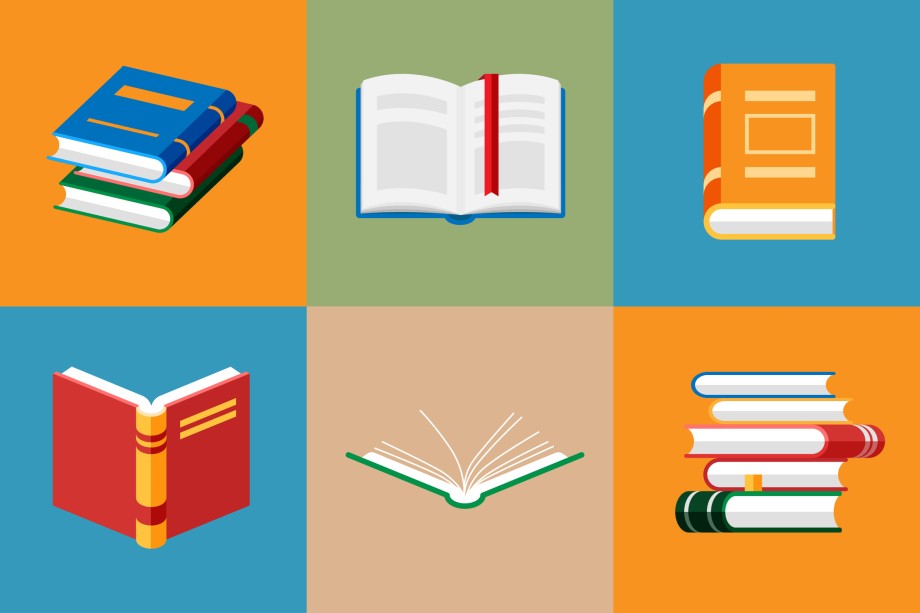
Scientific articles
- Al-Jarf, R. (2023). Digital Reading Among Educated Arabs: A Twitter-based Study. Journal of Computer Science and Technology Studies, 5(3), 01–12. https://doi.org/10.32996/jcsts.2023.5.3.1
- B.C. Tatar & H.K.Gerde (2022). Partnering with families to use screen time for supporting early language and literacy. The Reading Teacher, 76(4), 439-450. DOI: 10.1002/trtr.2150
- Barr, R., & Kirkorian, H. (2023). Reexamining models of early learning in the digital age: Applications for learning in the wild. Journal of Applied Research in Memory and Cognition. Advance online publication. https://doi.org/10.1037/mac0000132
- Boit, R., Bayer, S., Birabwa, J. et al. Learning Together Through Shared Book Reading: Experiences of Burmese Refugee Mothers and Their Preschoolers. Early Childhood Educ J (2024). https://doi.org/10.1007/s10643-024-01655-3
- Bus, A. G., Broekhof, K., & Vaessen, K. (2023). Free access to multilingual digital books: a tool to increase book reading? [Original Research]. Frontiers in Education, 8. https://doi.org/10.3389/feduc.2023.1120204
- Bus, A. G., Van IJzendoorn, M. H., & Pellegrini, A. D. (1995). Joint book reading makes for success in learning to read: A meta-analysis on intergenerational transmission of literacy. Review of Educational Research, 65, 1-21. doi.org/10.3102%2F00346543065001001
- Bus, A. G., Hoel, T., Aliagas, C., Jernes, M., Korat, O., Mifsud, C. L., & Van Coillie, J. (2020). Availability and quality of storybook apps across five less widely used languages. In: O. Erstad, R. Flewitt, B. Kümmerling-Meibauer, & I. S. Pires Pereira (Eds.), The Routledge Handbook of Digital Literacies in Early Childhood (pp. 308-321). New York: Routledge.
- Cun, A. (2022). Interactive Digital Book Reading in Families with Refugee Backgrounds. Journal of Research in Childhood Education. Published online: 14 Mar 2022. doi.org/10.1080/02568543.2022.2028944
- Dickinson, D. K., & Morse, A. B. (2019). Connecting through talk: Nurturing children’s development with language. Paul Brookes.
- Egert, F., Cordes, A.K., Hartig. F. (2022). Can e-books foster child language? Meta-analysis on the effectiveness of e-book interventions in early childhood education and care. Educational Research Review, Volume 37, 2022, https://doi.org/10.1016/j.edurev.2022.100472.
- Li, X., & Bus, A. G. (2023). Efficacy of digital picture book enhancements grounded in multimedia learning principles: Dependent on age? Learning and Instruction, 85, 101749. https://doi.org/https://doi.org/10.1016/j.learninstruc.2023.101749
- McNally, S., Leech, K. A., Corriveau, K. H., & Daly, M. (2023). Indirect Effects of Early Shared Reading and Access to Books on Reading Vocabulary in Middle Childhood. Scientific Studies of Reading, 1-18. https://doi.org/10.1080/10888438.2023.2220846
- Nicolai, S., Khan, A., Kartha, A., Kamninga, T., and Bapna, A. (2023). Raising Readers: Can mobile technology enable Kenyan schools to improve parent andcarer engagementin reading with their children? [Phase 1: Final Report / Technical Report]. EdTech Hub. https://doi.org/10.53832/edtechhub.0173. Available at https://docs.edtechhub.org/lib/N2E79MUD Available under Creative Commons Attribution 4.0 International
- Rohlfing, K. J., & Müller-Brauers, C. (2021) (Eds.), International Perspectives on Digital Media and Early Literacy. The Impact of Digital Devices on Learning, Language Acquisition and Social Interaction. New York, N.Y.: Routledge
- Sarı, B., Asûde Başal, H., Takacs, Z. K., & Bus, A. G. (2019). A randomized controlled trial to test efficacy of digital enhancements of storybooks in support of narrative comprehension and word learning. Journal of Experimental Child Psychology, 179, 212-226.
- Valcárcel Jiménez, M., Wirth, A., Birtwistle, E. et al. The home literacy environment and television exposure as mediators between migration background and preschool children’s linguistic abilities. Read Writ (2023). https://doi.org/10.1007/s11145-023-10458-8
- Walsh, James & Vaida, Naomi & Coman, Alin & Fiske, Susan. (2023). Stories in action-PSPI. Psychological Science in the Public Interest. 23. 99-141. 10.1177/15291006231161337.
- Wang, X. C., Christ, T., & Mifsud, C. L. (2019): ‘iPad has everything!’: how young children with diverse linguistic backgrounds in Malta and the U.S. process multimodal digital text. Early Child Development and Care. To link to this article: https://doi.org/10.1080/03004430.2019.1593157
- X. Zhang & L. Jiang (2024). Enhancing dual language learners’ language learning through parent–teacher partnerships. Language Teaching Research, 1-28. DOI: 10.1177/13621688241236286
Online resources
- The Routledge Handbook of Digital Literacies in Early Childhood
- Natalia Kucirkova on Research Gate
- SprachSpielLabor
- Painting A True Picture Of Literacy Standards In Malta
- Sardes-Leespluim
- Het Woeste Woud
- Digital picture books: A new opportunity for children whose parents do not read with them
- SPRELL - University of Stavanger
In the news
Comments on current issues related to SAYL.

29-03-2024
The country is reeling from the PISA 2023 results, with nearly all EU countries outperforming the Netherlands. As we delve into the causes behind the lackluster reading performance of Dutch 15-year-olds on the PISA test, we repeatedly encounter various explanations. One such discussion among experts in the Netherlands, along with representatives in parliament responsible for education, was reported in a recent newspaper article titled "Message to Parliament: Reading Pleasure Must Return in the Classroom" (Volkskrant, March 28).
Throughout all deliberations, a common thread emerges: there is a deficiency in general knowledge among children, which diminishes the appeal of reading. Experts underscore the importance of making knowledge a central focus in elementary instruction to enhance both reading proficiency and enjoyment. It is emphasized that possessing a broad understanding of the world enables individuals to tackle challenging children's books.
I am somewhat sceptical of this analysis. It's plausible that both reading difficulties and limited general knowledge are interconnected. However, I doubt that a policy shift placing more emphasis on science and biology would necessarily improve reading achievements. This notion resembles the popular hypothesis in the US that insufficient vocabulary is a main explanation for reading problems and we need to teach vocabulary.
While it is undoubtedly crucial to impart fundamental principles of science and biology in schools, reading serves as a primary means of exploring the world around us and expanding general knowledge. In our 2011 article in Psychological Bulletin ("To Read or Not to Read"), where we explored the correlation between vocabulary and reading, we proposed a reciprocal relationship that may apply here as well: Proficiency in vocabulary facilitates smoother reading experiences, yet without engaging in reading, the acquisition of new vocabulary may plateau.
It seems most plausible that the same principle applies to general knowledge: the more you read, the more you know. If you cease reading longer texts, both in school and during leisure time because other activities consume all your attention, neither general knowledge nor reading proficiency will continue to develop.
February 11 2024
A few weeks ago, an article written by journalist Daphne van Paassen was featured in the Dutch magazine "de Groene Amsterdammer," detailing her experiences as a volunteer with the Voorlees Express. The Voorlees Express is an organization dedicated to connecting volunteers with families with young children who lack exposure to language. The basic idea is that volunteers share books with the child, demonstrating to the parent how it can be done. It has expanded to encompass 560 locations throughout the Netherlands, with nearly 5000 volunteers assisting approximately 8,000 children.
In her article, van Paassen recounts her initial visit to a Punjabi-speaking family. Initially expecting a cozy hour immersed in books on the couch, her hopes were swiftly dashed. Instead, she found herself grappling to manage Jai, a two-year-old, while attempting to read just one book during the entire visit. Over the span of the 20-week intervention with one visit per week, their sessions were primarily filled with games like a marble track, interspersed with sporadic attempts at reading a book.
She observes that while Jai remained engrossed in games, his interest in books remained minimal throughout the period, a response understandable given the formidable challenges. With his language abilities severely limited—he is two years old but only speaks three words—this presents a significant hurdle, especially when the communication takes place in Dutch. The absence of proficiency in Punjabi on the part of the volunteer reader could compound the issue. For a child growing up in a Punjabi-speaking household, Punjabi might prove far more preferable to Dutch as a medium of communication.
Furthermore, van Paassen's efforts do not seem to resonate with the family. She does not mention that despite the mother's evident gratitude, expressed through the preparation of delightful dishes, there are no attempts to replicate her efforts and share books with Jai. Actually, the volunteer is very grateful when she manages to play with the boy. They never seem to reach a point where she can provide genuine assistance and help the mother discover compelling books to share with Jai.
November 27, 2023
In the midst of Children's Book Week, Dutch author Ted van Lieshout is sounding the alarm about the dwindling interest in reading among kids (Volkskrant, October 7, 2023). His concern is made palpable in an accompanying illustration in the article that envisions the future: we see a father and child in a museum, in a world where reading is no longer a common activity. They gaze at a human skeleton clutching a book, with a framed letter 'A' on the wall.
Van Lieshout's first tip, urging parents and teachers to read to children at home and in schools, is nothing groundbreaking – it's probably old news to most parents. He emphasizes the importance of not giving up the habit of sharing books, even when kids have become proficient readers themselves and no longer need assistance.
His second piece of advice is where things get interesting. Van Lieshout emphasizes the need to turn the act of reading to children into a daily routine, akin to brushing teeth. He argues that, just like we don't allow kids to skip dental care, we shouldn't be lax about fostering a reading habit for mind care.
Not surprisingly, skipping the daily reading session seems to happen frequently in many families. It's plausible to assume that book reading competes with numerous other activities, and the preference for book reading over another activity is mostly not a conscious, controlled, and rational choice. Instead, as is typical of the fast, automatic decisions people make all day about what to do next, the choices are rather unconscious, uncontrolled, and associative.
The question arises: Can the SAYL platform be a game-changer in promoting a consistent reading routine among young children from families where routines are missing? What features are essential to ensure kids return to the platform regularly, ideally on a daily basis?
Apart from attractive books that motivate children to return to the SAYL platform, we need to convince parents that mobile educational apps can be an effective learning tool (Papadakis and Kalogiannakis, 2017). Their negative reputation in the media might keep parents from motivating their children to use the platform with digital books. So, it is crucial to figure out how we can involve parents in encouraging their children to use the SAYL books.
Perhaps centers and schools could support parents in establishing and maintaining reading habits at home by encouraging them to read the same SAYL books with their kids at home as are read to them at school or in centers. After all, fostering a love for reading in children requires a village – or in this case, a digital platform – to make it happen.
By Adriana Bus
September 4, 2023
Bibi Dumon Tak has gained fame in the Netherlands following her appearance on the iconic Dutch television show "Zomergasten" [Summer guests] on August 13. Not many children's book authors can boast such recognition. Bibi is critical of the state of reading education in the Netherlands, but she is particularly concerned about the literature children are exposed to. One of her criticisms revolves around parents' and teachers' preference for classic literature when reading to their children, demonstrating a lack of willingness to explore the unfamiliar.
During the COVID-19 pandemic, she encountered various social media requests for book recommendations. However, one particular request left a lasting impression. It inquired, "Does anyone know of a book for my eight-year-old daughter and me to read together? Not classics, as we've already read those." There were 268 responses to this father's query, but, to her surprise, the majority suggested classics, despite the explicit request to avoid them. The first ten books recommended were:
- Matilda (Roald Dahl)
- Harry Potter (Joanne J. Rowling)
- Lord of the Rings (Tolkien)
- Crusade in Jeans (Thea Beckman)
- The Famous Five (Enid Blyton)
- The Letter for the King (Tonke Dragt)
- The Little Captain (Paul Biegel)
- The BFG (Roald Dahl)
- Animal Farm (George Orwell)
- The Quest (Frederik van Eeden)
This trend raises questions about why people keep turning to these older works and what drives this nostalgia and need for familiarity. Dutch author Marieke Lucas Rijneveld poignantly describes in "Het Warmtefront" what Roald Dahl's "Matilda" can mean to an anxious child trying to find her way in school. These classics are timeless in this respect. Nevertheless, I understand Bibi's persistent concerns. There exists a wealth of talented writers producing excellent books tailored to eight-year-olds. So, why are we not more familiar with those? Bibi's answer is that as adults, we are often too hesitant to venture beyond the familiar confines of our own literary comfort zones.
By Adriana Bus
28.08.2023: Comment on Janneke Schotveld's opinion in de Volkskrant
On August 22, 2023, a significant complaint emerged in one of the prominent Dutch newspapers, de Volkskrant. In the article, Janneke Schotveld, a well-known Dutch author of children's books, drew attention to a troubling pattern. She observes that as the new school year begins, her mailbox swiftly fills with requests from teachers seeking free books. While she acknowledges the valid reasons behind their requests - aiming to enhance reading education and create positive classroom experiences - she also expresses a mixture of frustration and anger. Her frustration has two main sources: firstly, the revelation that many schools opt to allocate funds for a new math method at the expense of literature, and secondly, the assumption that authors should readily provide free books without recognizing the substantial effort that goes into their creation.
Janneke Schotveld is astonished by the unwillingness of schools to allocate resources for quality literature for their students. Her anger arises from the observation that authors invest their heart, effort, and dedication into crafting books, while schools appear to cut corners in this crucial aspect of education. She passionately argues that this indifference towards literature indicates a lack of concern for the well-being of children. She underscores that valuable books shared within classrooms not only contribute to children's reading enjoyment and skill development but also foster group cohesion by uniting the class through shared stories.
Echoing Janneke's sentiments, I concur that the current situation, in which schools struggle to allocate resources for quality books, is illogical. SAYL's policy to offer free access to a digital library is driven by the recognition that many parents might lack the financial means to buy books. However, we both agree that this approach isn't fair to all the artists involved. A more equitable solution would involve child centers and schools taking on the responsibility of funding books, while parents gain free access through these institutions.
By Adriana Bus
Updates from the project
Stay up to date with the project activities!
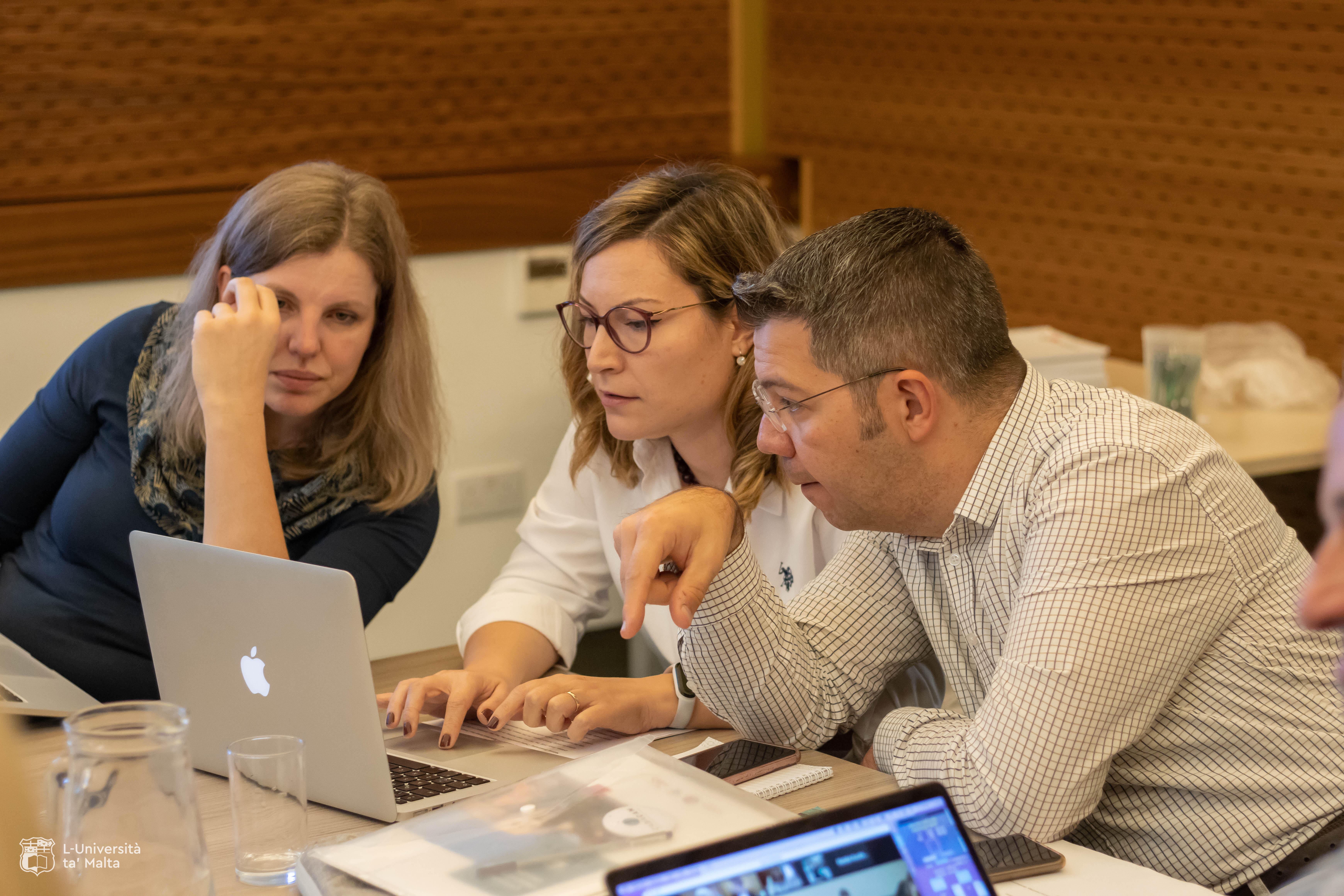
Presentation on SRCD 2021
"A platform with multilingual digital picture books to promote book sharing in families: first results"
Contribution to an SRCD symposium “The potential of digital media for word learning among educationally at risk preschoolers,” chair: Susan B. Neuman (New York University), Salt Lake City, March 24, 2023. Download the presentation by Trude Hoel and Adriana Bus here (pdf).
In-person meeting in Malta – 17–18 November
The project group met for the first time in-person in Malta for a two-day workshop. The University of Malta hosted the meeting beautifully in one of the old buildings in the center of Valetta. Between two days of meetings, I could enjoy the view of the Valetta Harbor, St John's Co-Cathedral with Caravaggio's famous paintings ('Beheading of St. John the Baptist' and 'St. Jerome'), and the excellent food and wine.
During the meeting, we discussed the following themes: the deliverables of Work Package 2 (Adriana Bus), the quality of picture books (Trude Hoel), which picture books we like and why (Kees Broekhof), Maltese digital books for bilingual families (Charles Mifsud), which books work best as digital books (Christiaan Coenraads), the potential of olfactory books (Natalia Kucirkova), a Maltese project conducted by the National Literacy Agency involving the parent-child joint reading of digital books in bilingual families (Charles Mifsud), books with a public domain license (Adriana Bus), a Turkish book platform (Burcu Sarı), experiences with a Dutch platform (Kees Broekhof & Adriana Bus), ideas for designing the platform format (Christiaan Coenraads), co-constructing stories at different levels (Katharina Rohlfing & Angela Grimminger), Ukraine books on Storyweaver (Natalia Kucirkova), and translation in which languages.
We discussed many essential issues concerning book choice. To mention a few: relevance of the book's popularity, icono-text, irony and humor, the aesthetic quality of the artwork, moralistic stories, the relevance of rich language, stories taking on a question-answer format, repetitive stories -repetition in finding solutions for a problem, and how we can promote that children likely read a story again and again.
I heard interesting new ideas, for instance, about conditions promoting the repeated reading of the same book. Children are more likely to reread the story when the child finds meaning during the first reading, but the book is sufficiently rich to discover new meanings during subsequent readings. Discussing the participants' favorite books, people brought up issues that would be problematic in their country: for instance, the child teaching the parent a lesson or parents acting as if they were monkeys.
It was fascinating to look at the books the participants brought as compelling examples and hear about their personal experiences with the stories. We talked about: The crocodile in the tree (Ragnar Aalbu), Frederick (Leo Lionni), Brave Ben (Matilde Stein), Pete on the Pavement (Tjibbe Veldkamp), Little White Fish (Guido van Genechten), and a Bulgarian fairy tale - all leading to fascinating observations and increasing my admiration for the book authors. Some brought up the idea of creating new stories from scratch. For example, a story demonstrating the difference between a robot and a human being seems promising. Tricky but exciting.
Inspired by Christiaan Coenraads' reflections, another important topic was the multimedia format: the potential but also its dangers. Books are digitized to improve the readers' connection with the stories. However, we need to prevent some risks. Enjoying a story results from efforts to imagine what is happening and empathize with the characters. Children's brains may become less active with an app, expecting the app to do all the work, passively consuming the animations. The trick is to use multimedia to enhance the events' surprise, delight, and beauty.
I also have high expectations from the idea of adding animations to the platform where children choose the book and language. For example, we may think of a robot welcoming the child, saying the child's name, and suggesting a book choice.
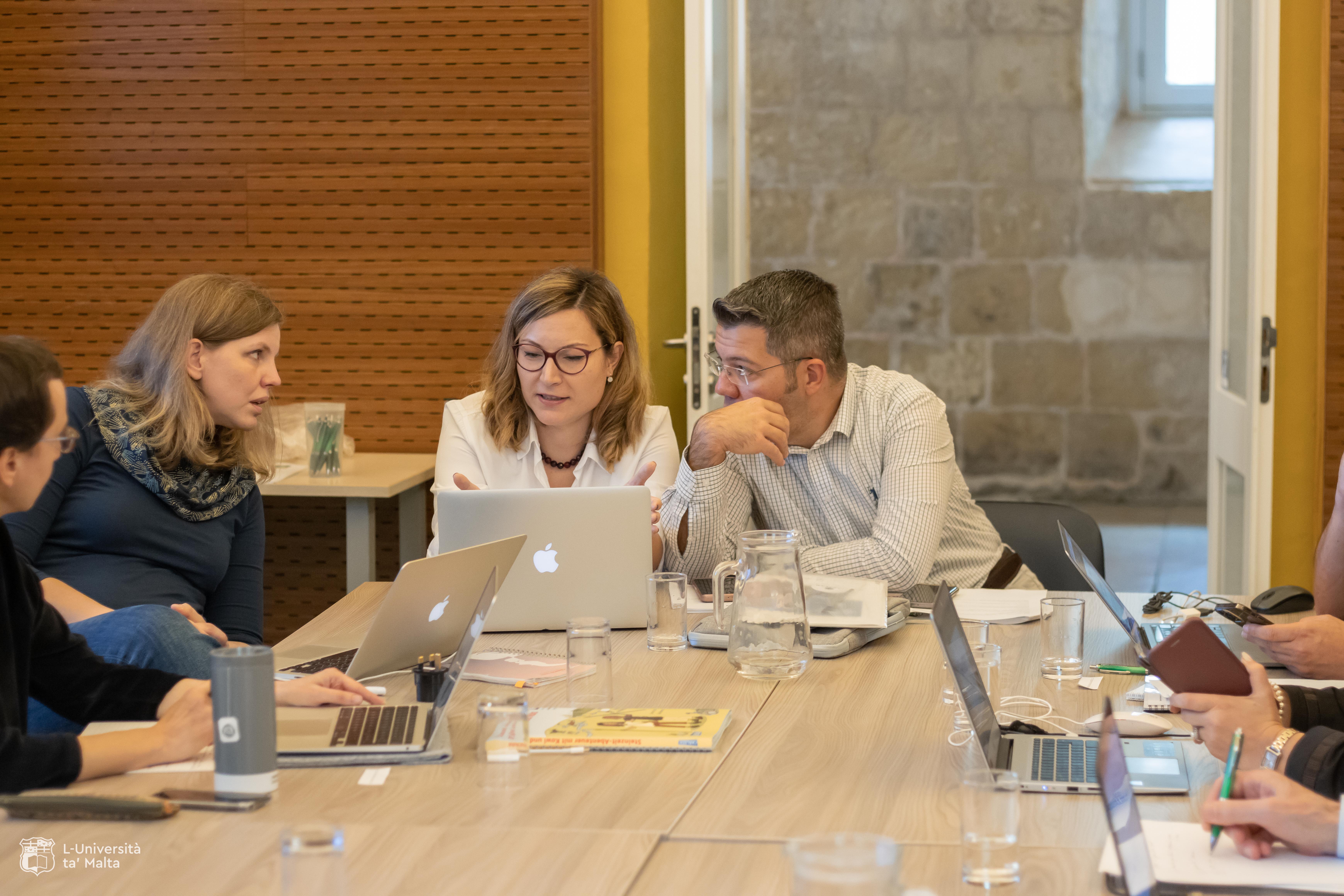
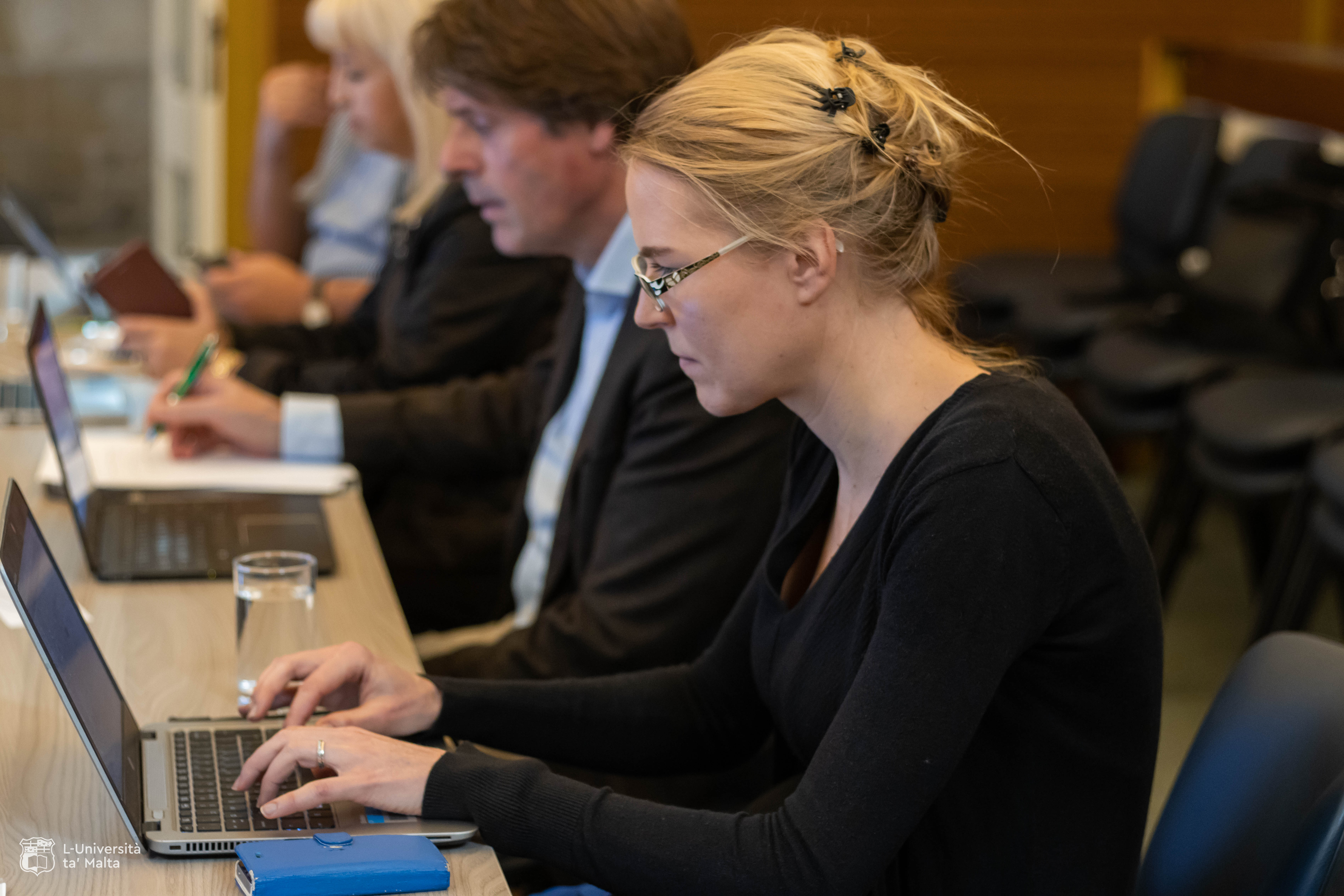
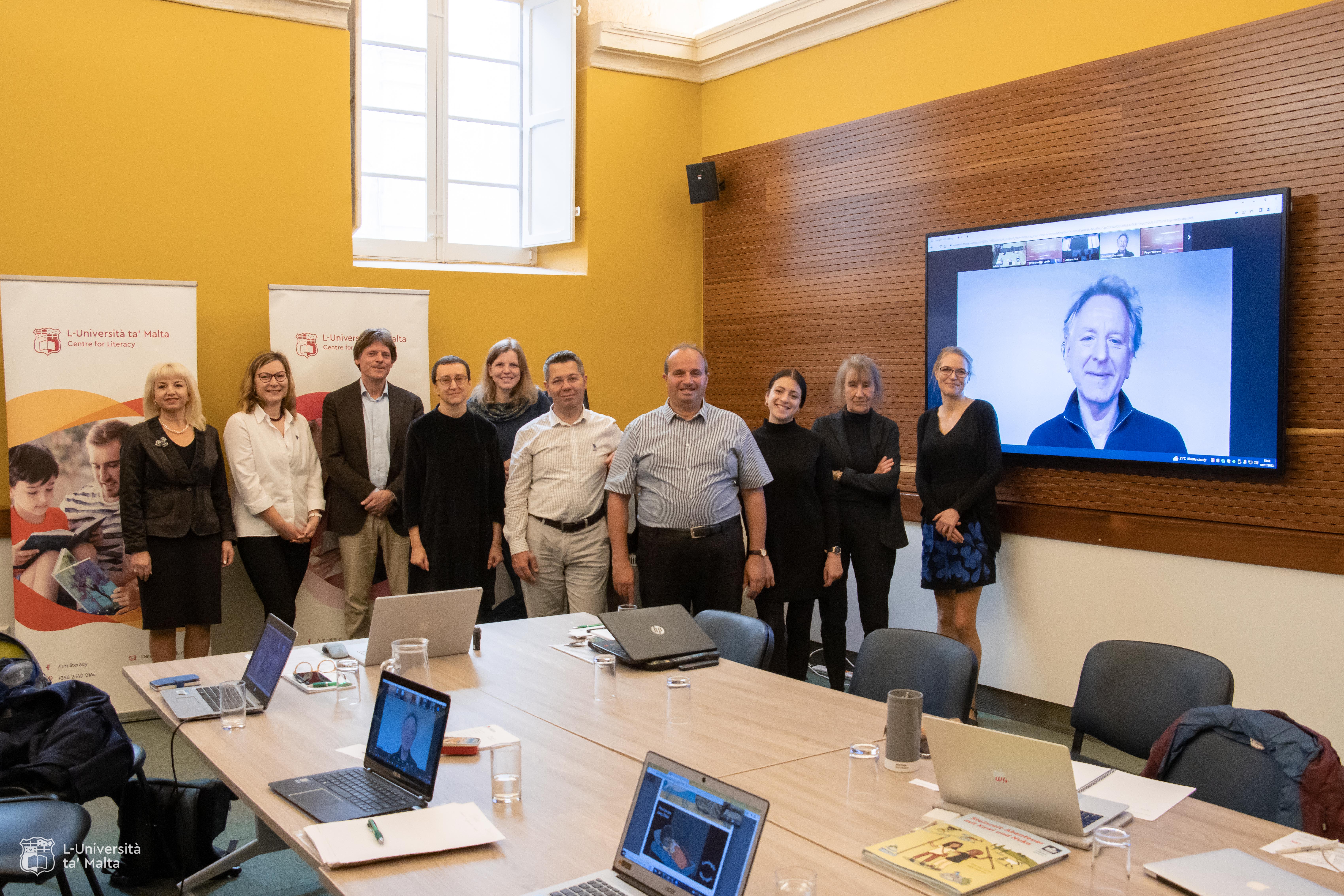
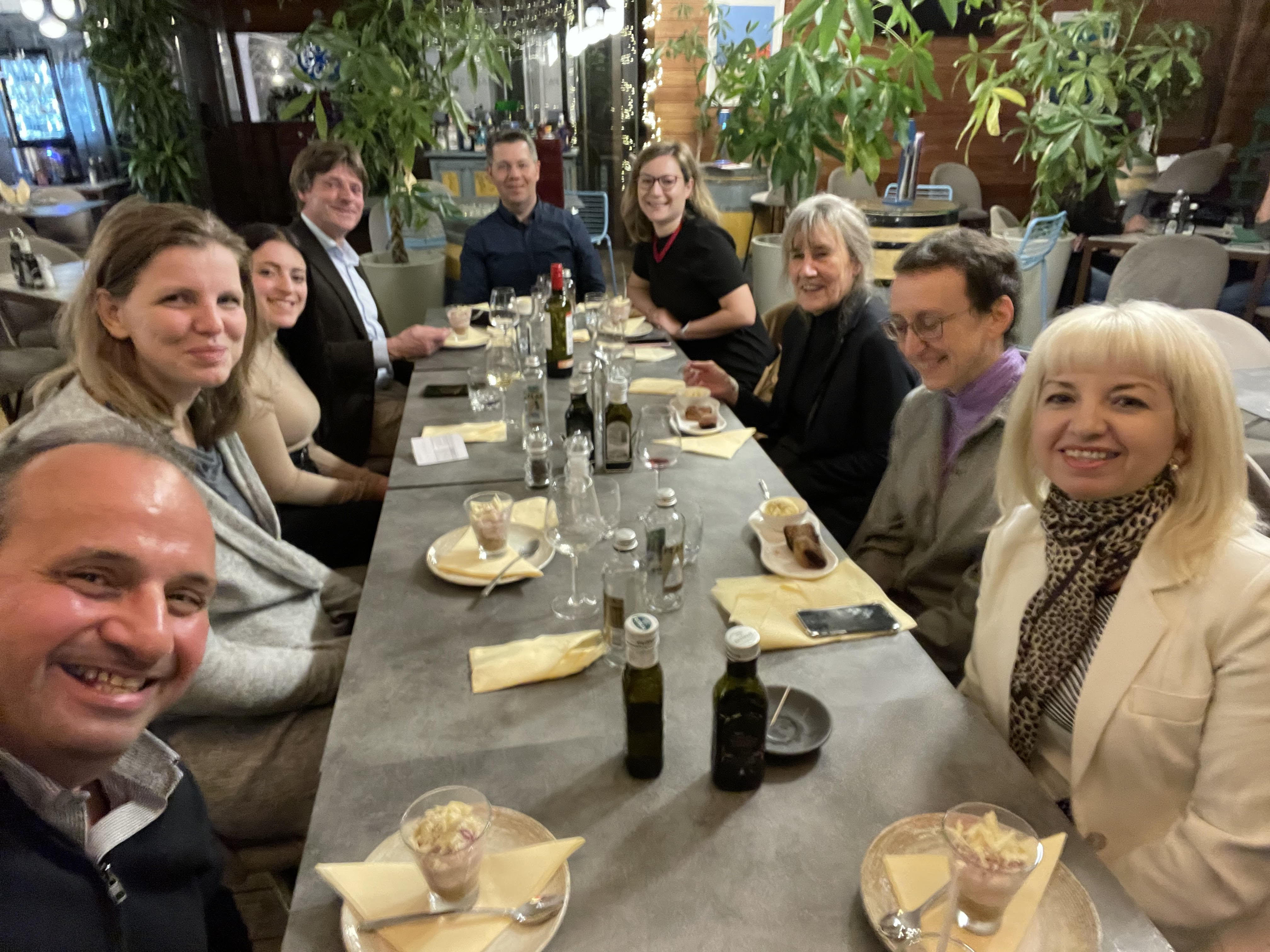
Adriana Bus
University of Stavanger, Norway Çanakkale Onsekiz Mart University, Turkey Universität Paderborn, Germany L-Università ta' Malta, Malta Stichting Sardes, Netherlands Het Woeste Woud, Netherlands
Adriana Bus, University of Stavanger Trude Hoel, University of Stavanger Natalia Kucirkova, University of Stavanger Charles L. Mifsud, University of Malta Katharina Rohlfing, University of Paderborn Angela Grimminger, University of Paderborn Jutta Trautwein, University of Paderborn Burcu Sarı Uğurlu, Çanakkale Onsekiz Mart Üniversitesi Bora Uğurlu, Çanakkale Onsekiz Mart Üniversitesi Sezen Apaydin, Çanakkale Onsekiz Mart Üniversitesi Kees Broekhof, Sardes Karin Vaessen, Sardes Christian Coenraads, Het Woeste Woud

